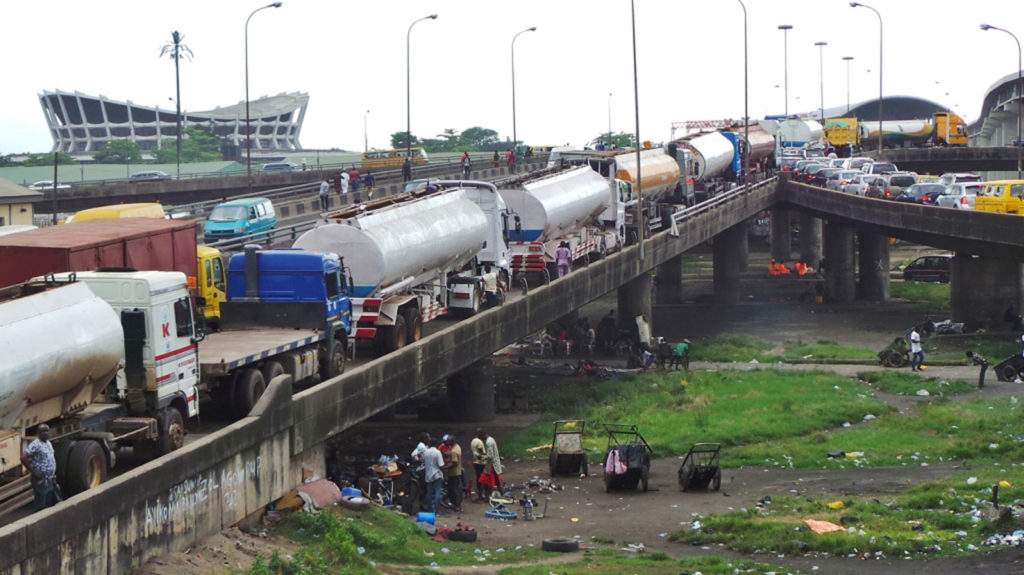
Yes, there have been clamours to reconstruct the roads leading into the nation’s ports and especially Apapa. And it is gratifying that the government conceded a four-kilometre stretch Apapa-Wharf Road to Dangote Group, the Flour Mills, and the NPA as part of their Corporate Social Responsibility. In this same vein, the federal government has elected to carry out repair works on the usually busy Apapa Bridge. The Federal Controller of Works in Lagos, Mr. Adedamola Kuti, recently announced the impending closure of the bridge because Julius Berger Plc., the contractor handling the repair would be moving to site for the repair of the bridge, while A.G. Dangote Construction Company also announced plans to close both sides of the Wharf Road inward and outward Apapa for the reconstruction. There is no gainsaying that the repair and reconstruction of the roads will contribute significantly to the port business in Nigeria and enhance free flow of traffic in the Apapa metropolis when completed. However, to close the two major roads into the ports is clearly an overkill and ill-advised. Perhaps the government thought it would be best to carry out the repair work on the Apapa Bridge while work is on-going on Wharf Road to allow stakeholders endure the hardship once and for all. It could also be that both parties are racing to beat the raining season that is still some months away. Whatever the case may be, it is clearly and absolutely reckless to close the major roads into the ports. To the best of my knowledge, the world is not coming to an end in the next two months. And there is no law compelling A.G. Dangote and the federal government to carry out reconstruction and repair works at the same time.
In civilised climes when this kind of societally beneficial project is carried out, they are done with minimal hardship on the people because the joy of the government is to ensure that the people are not subjected to excruciating hardship. In achieving this, alternative routes are created for motorists to ensure free flow of traffic. Besides, such works are rarely done simultaneously in a densely populated area.
What should have brought excitement to users of the port and Lagosians generally is clearly designed to be the opposite as commuters are bound to experience extended hours of traffic congestion in an already congested environment. Aside the unpleasant experience the people will face, it will also lead to loss of revenue. Already the Seaport Terminal Operators Association of Nigeria (STOAN) has warned of likely surcharge of $100million due to the impending port congestion. Of course, being the businessmen and women that they are, whatever surcharge that is placed on terminal operators will also be transferred to other stakeholders in the industry.
There are always better ways to pursue a noble cause. It is not rocket science to open an alternative route before closing the roads. Besides, there is no medal for closing the roads at the same time. Rather, it is indicative of the value we place on human lives in this country. Inflicting pain on people in the name of providing infrastructure is not best practice. In present day, construction works are done with minimal impact on the people while the construction lasts. International safety standards are being reviewed on a daily basis to ensure the safety of people. The road closure without alternative routes is completely an aberration against international safety standards. There is no doubt this move will lead to unimaginable hardship on the people. Let us imagine an extreme emergency situation that requires an individual to be taken to a hospital outside Apapa during the construction, with all roads closed and traffic congestion. Has such person not been condemned to death already?
In the same vein, if we are truly interested in increasing our non-oil revenue, how can we possibly be comfortable with making business difficult at our foremost ports for duration of more than seven days? This is in dissonance with the ease of doing business drive by the Presidential Enabling Business Environment Council (PEBEC) led by the Vice President, Prof. Yemi Osinbajo. Nigeria will be losing so much while these roads are closed and it will impact the industry beyond the duration of the closure. It is never too late to reconsider this position and proffer an innovative alternative to road closure and simultaneous construction. Rather than embrace retrogression, we should learn from other nations in how they maintain standards aimed at making live easy for the people. Let us not attract unnecessary condemnation in the execution of a commendable effort.